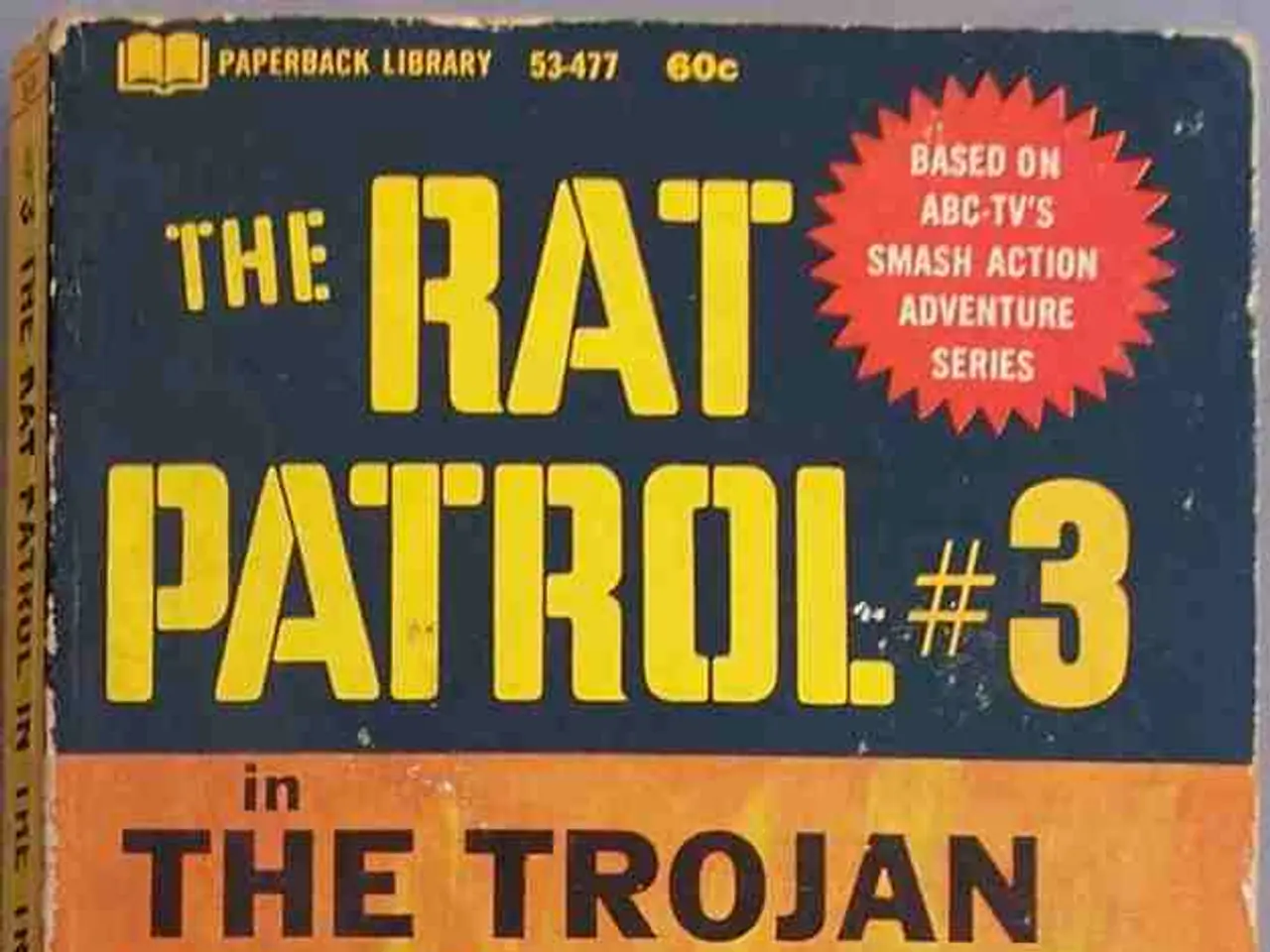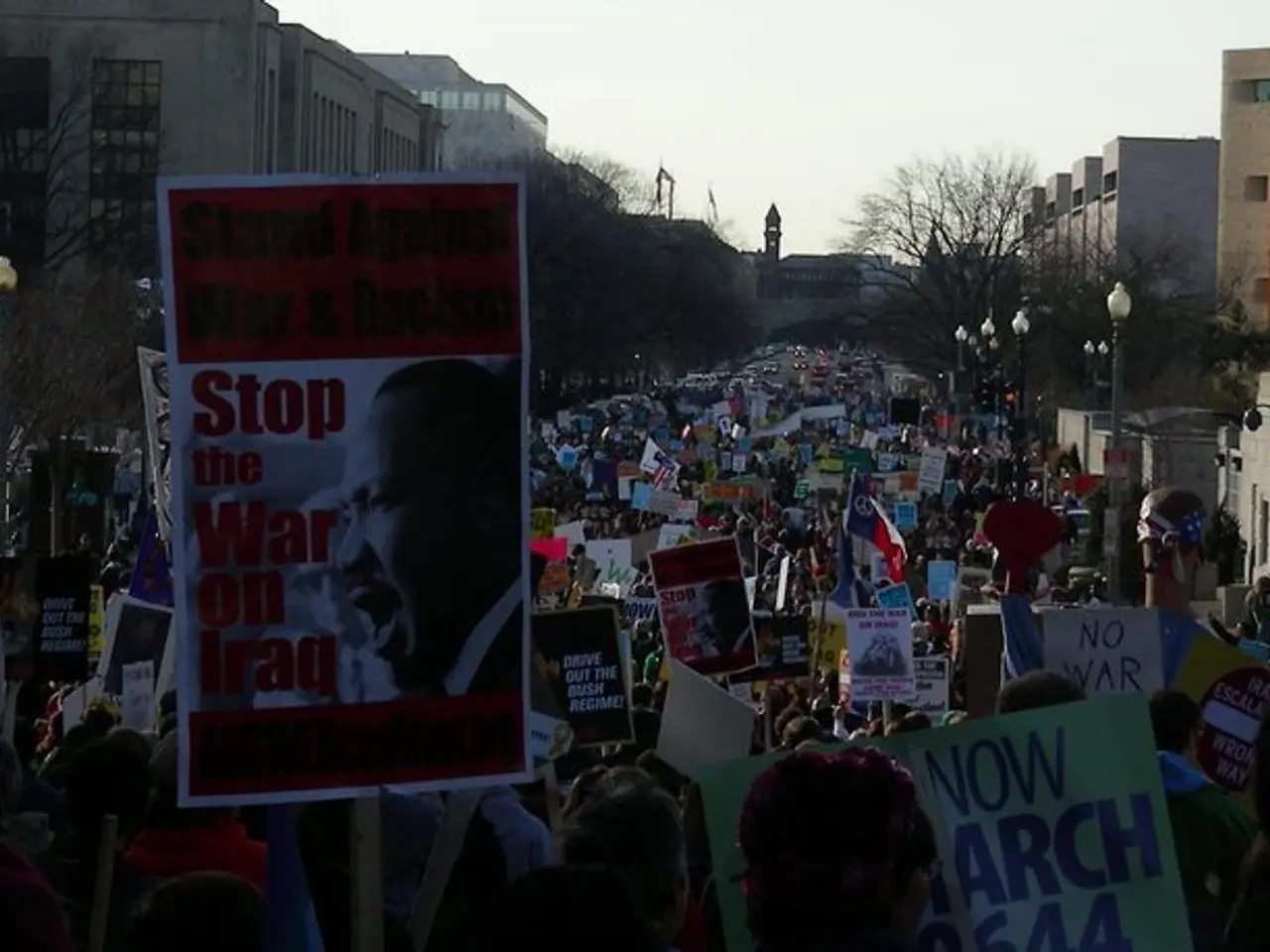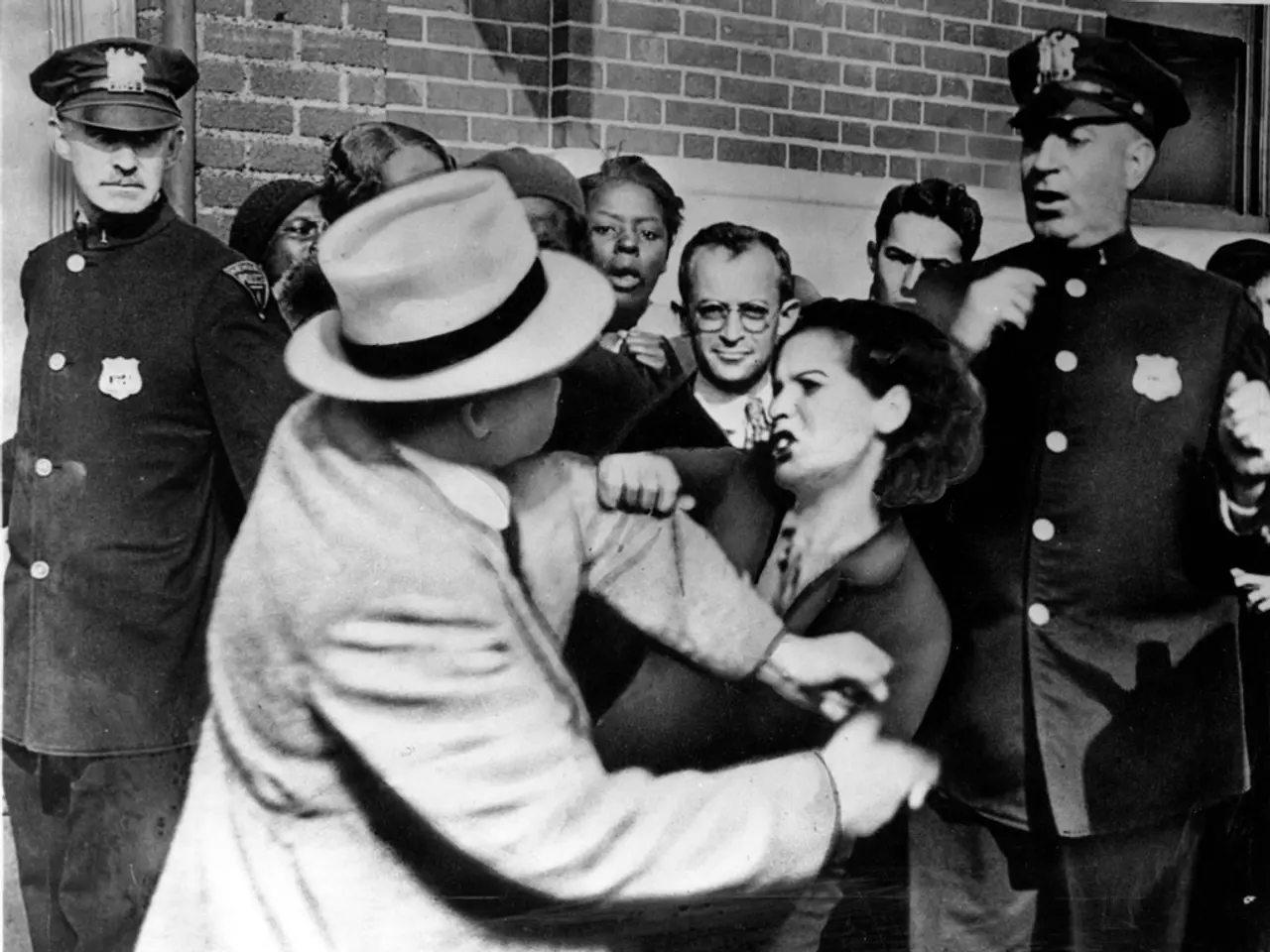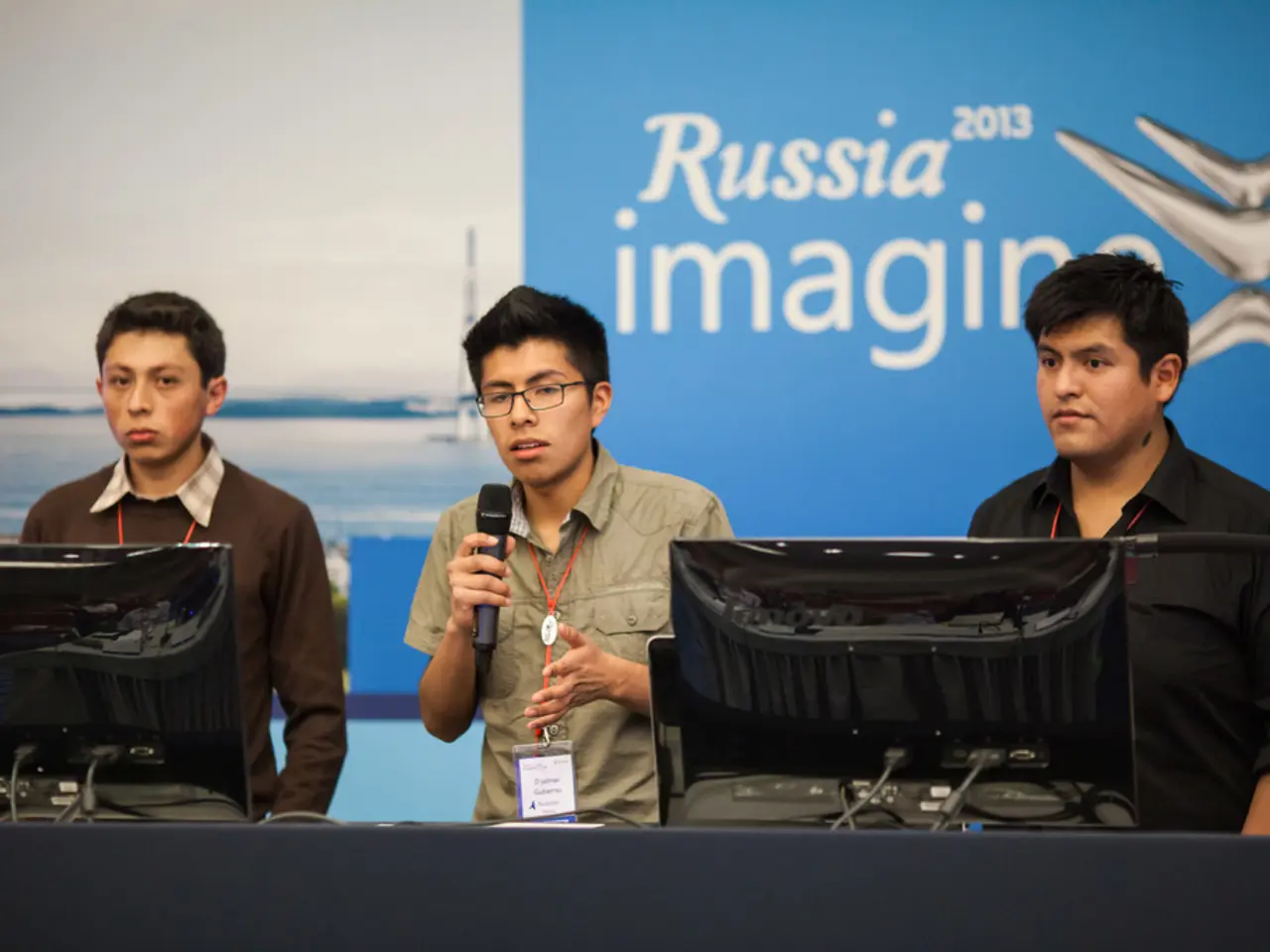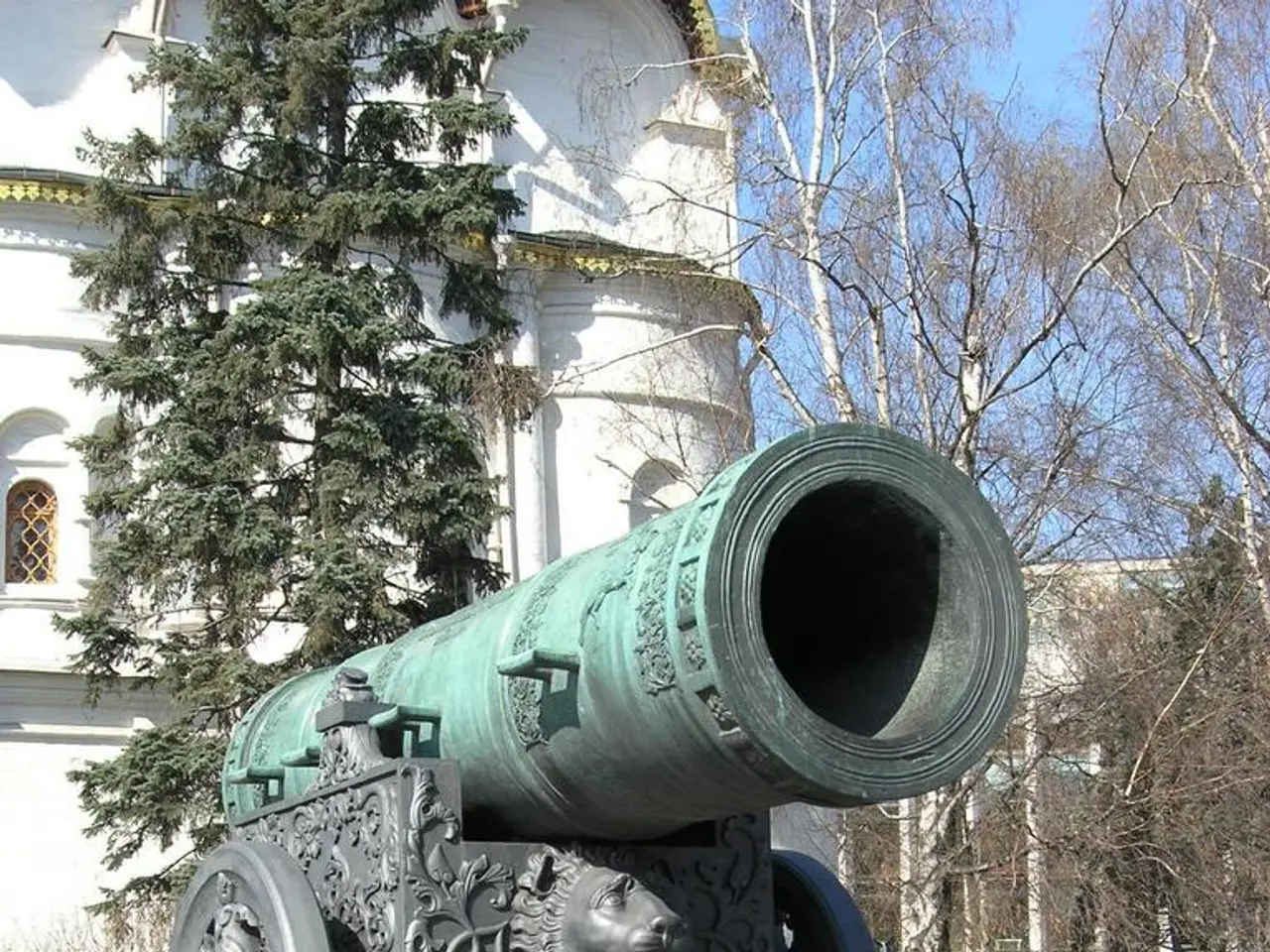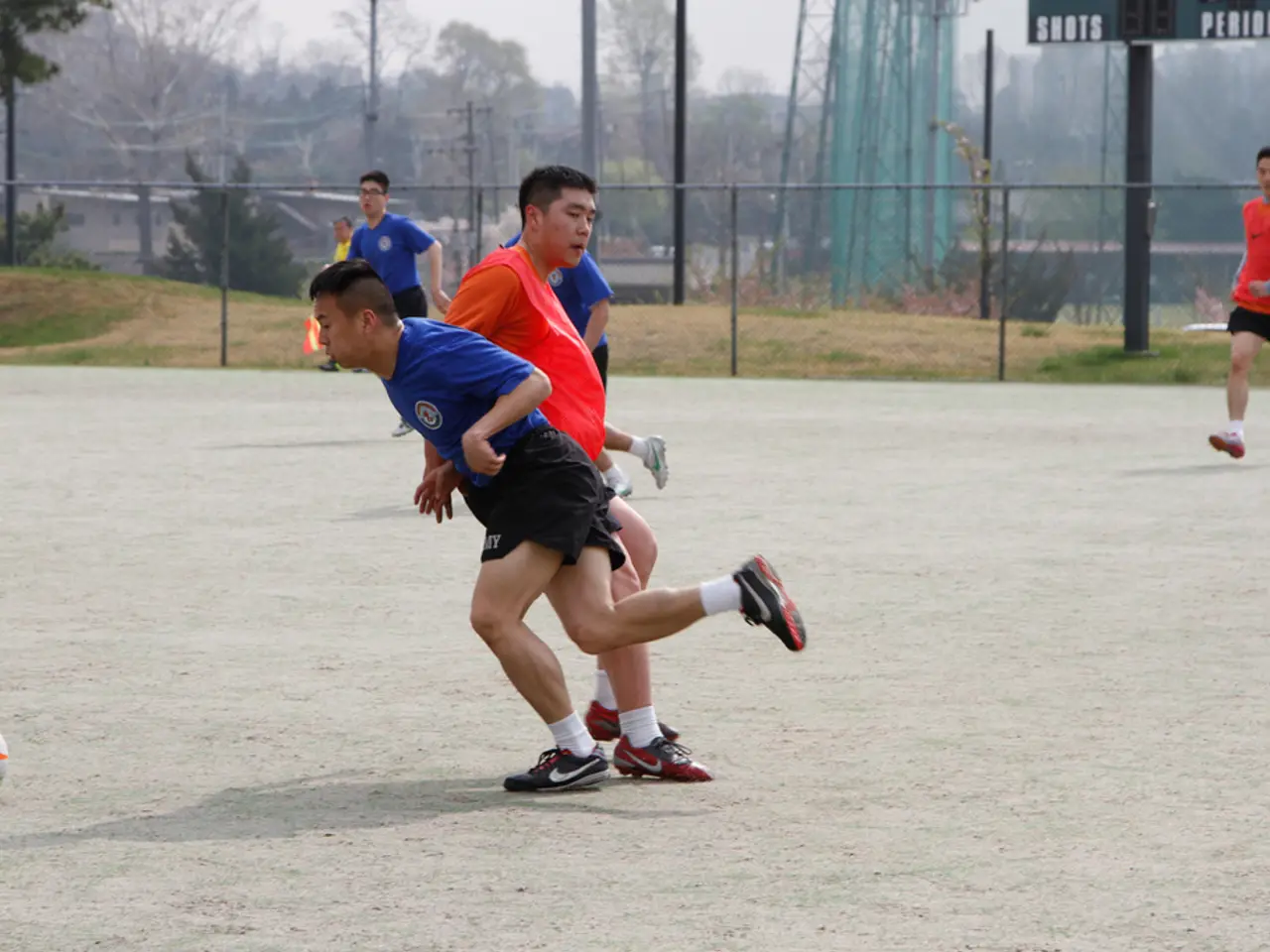Ongoing Conflict: Efforts for Diplomatic Resolution Persist Among Europeans (During the Second Week) - Escalating Conflict: European Nations Pursue Diplomatic Resolution in Ongoing War
Headline:Tensions Persist: Europe Grasps for Diplomatic Solution Amidst Iran-Israel Conflict in Second Week of War
- *
The ongoing war between Israel and Iran is well into its second week, with the Israeli Air Force persistently targeting Iranian rocket systems as reported by their military. Meanwhile, diplomats from Germany, France, and the UK are tirelessly working towards a peaceful resolution. Today, German Foreign Minister Johann Wadephul is meeting in Geneva with his French and British counterparts as well as Iran's chief diplomat, Abbas Araghtschi, in hopes of finding a way to de-escalate the conflict.
Wadephul voiced concern before the meeting, warning, "Iran is now on a precipice." Araghtschi, however, stated unequivocally that negotiations hinged on halting Israeli attacks.
U.S. President Donald Trump left observers on the edge of their seats, hinting that he would decide within the next two weeks whether the U.S., as a key ally to Israel, would undertake military intervention in the conflict.
French President Emmanuel Macron also advocated for diplomatic resolution over further military action, stating, "No one can seriously propose that the solution to this threat is more operations." In fact, stating that the Iranian nuclear issue is a potent threat, Macron emphasized the need for no leniency in addressing the matter. Yet, he acknowledged the current operations are fruitless, as operations against Iran's protected works have no definitive outcome.
Israeli Defense Minister Israel Katz, on the other hand, ordered the escalation of the attacks, intending to destabilize the Iranian regime by attacking state symbols and eventually causing the evacuation of Tehran's population.
The United Nations Refugee Agency (UNHCR) is bracing for an influx of Iranian refugees, with UNHCR Chief Filippo Grandi preparing crisis plans due to the escalating conflict. Already, there have been unconfirmed reports of Iranian refugees arriving in Armenia, Azerbaijan, and Turkmenistan.
In Israel, there is a growing sense of pride in its military capabilities, according to Middle East expert Simon Fuchs, which could jeopardize diplomatic efforts. The professor of Islamic studies at the Hebrew University in Jerusalem expressed that the Israeli sentiment is, "One wants to preserve Iran's military power and nuclear capabilities." If this remains unchanged, the European-led talks may very well fail.
A genuine opportunity for a diplomatic breakthrough, according to Fuchs, could come if Iran could be persuaded to abandon uranium enrichment entirely, even for civilian purposes. Araghchi has steadfastly rejected this request so far. However, Fuchs postulates that such a concession might not require Iran to completely capitulate, as the political and religious leadership could point to the longevity of their rocket force and successful strikes on Israel as justifications for crossing perceived red lines. The upcoming Islamic month of Muharram, Fuchs notes, could create an ideological framework for such actions.
Some experts believe Iran is simply buying time, eschewing negotiations for the time being while rationing its rockets and bolstering domestic support with propaganda. A targeted strike on the uranium enrichment facility in Fordo, for instance, could prevent a prolonged conflict, but it remains uncertain whether such an action would lead to Iran's capitulation or cause the collapse of the government. Only time will tell whether diplomatic efforts can prevail in this complex and volatile situation.
The Commission, amidst this ongoing war-and-conflicts, has also been asked to submit a proposal for a directive on the protection of workers from the risks related to exposure to ionizing radiation in the context of the general-news involving Iran-Israel conflict.
Meanwhile, the politics of diplomatic resolution dominate discussions, with President Emmanuel Macron advocating for no leniency in addressing the Iranian nuclear issue, yet acknowledging the current military operations are fruitless.
